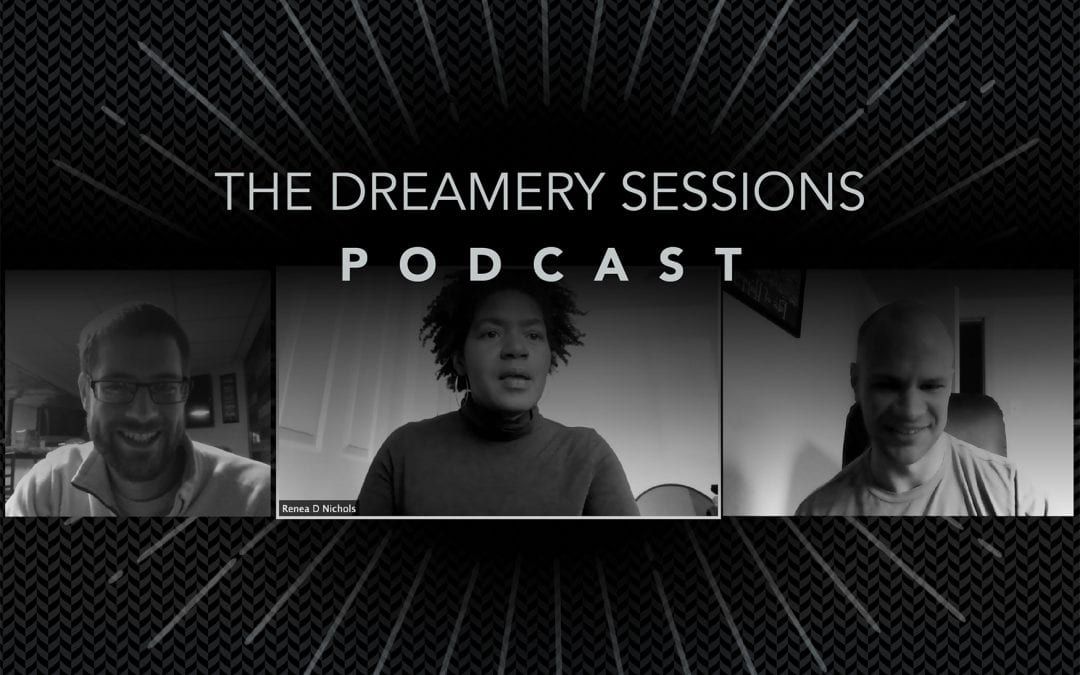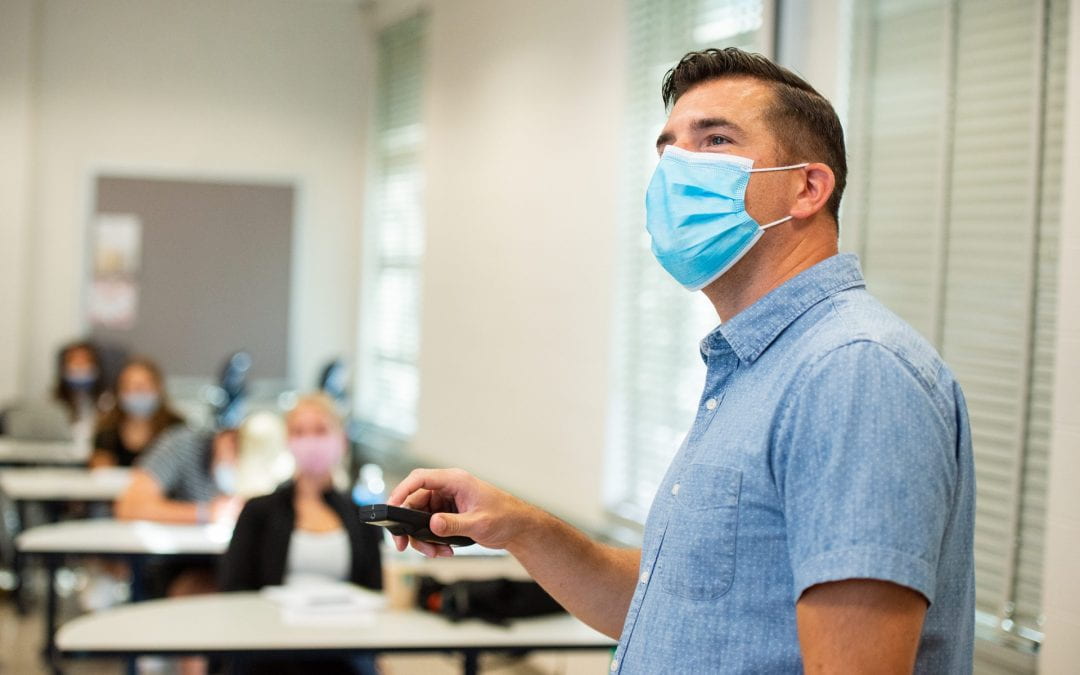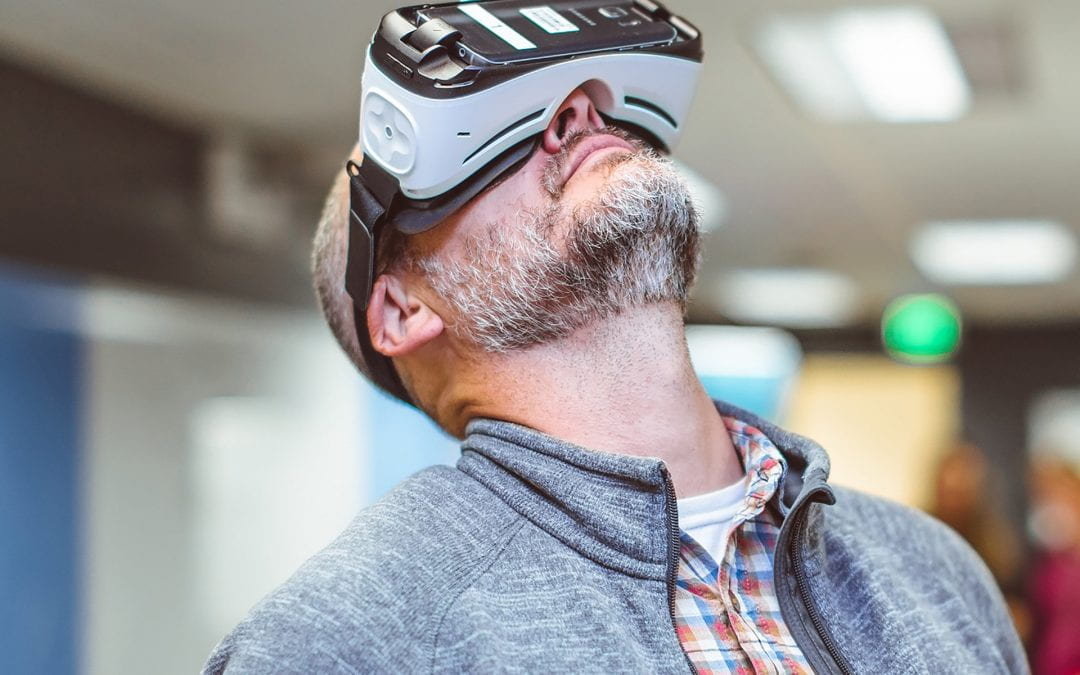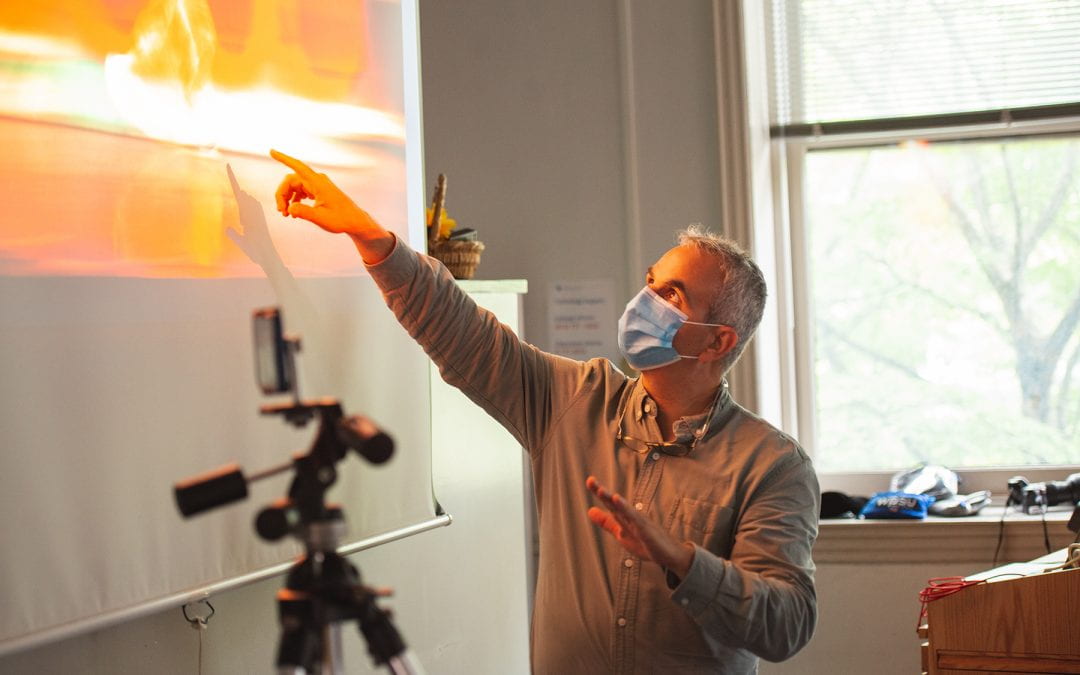
May 24, 2021 | Home Page
Throughout the Penn State community, inspiring stories abound how faculty and students persevered through the most recent academic year. The second season of “The Dreamery Sessions” podcast is available now and digs into one such story.
Co-hosts Ray Schmitt, public relations specialist with Penn State IT, and Zach Lonsinger, learning experiences designer with Teaching and Learning with Technology, are joined for four episodes by Dr. Renea Nichols, assistant teaching professor in the Bellisario College of Communications.
From the onset of remote and hybrid teaching brought on by the pandemic, Nichols has implemented creative and innovative practices to deliver enriching lessons to her students. On “The Dreamery Sessions,” she shares her inspiration, her process, her strategy, her thoughts on where teaching and learning go from here, and much more.
Listeners can tune in to Season Two’s four episodes for conversations on Nichols’ teaching background, understanding student engagement in a modern context, lessons learned around student inequality, and the personification of grit.
“The Dreamery Sessions” is available on Apple Podcasts, Spotify, and Anchor, and episodes can be streamed on the TLT website.

May 6, 2021 | Home Page
Teaching and Learning with Technology (TLT) began its Blended Learning Transformation (BlendLT) program in 2016. Since its inception, BlendLT has helped redesign 39 in-person courses to a blended format, and over 1,000 students have benefited.
TLT is now accepting proposals for the 2021 BlendLT cohort. The window for proposals will remain open until May 20, 2021. Interested faculty can submit their proposal online. The program is open to all faculty members, including tenure and teaching track faculty members as well as adjunct faculty.
Participants will have the opportunity to repurpose successful materials created for the remote teaching environment, incorporate best practices in course design, and provide justification for a course mode change to their academic unit.
“Blended courses are designed to utilize the best elements of in-person and online teaching and learning,” said Angie Dick, manager of learning design with TLT. “BlendLT gives Penn State faculty support during and after their course’s transformation to help ensure an optimal experience for everyone.”
Those who are accepted into the BlendLT program will receive support to transform their courses through the formal workshop series, the BlendLT Learning Path, and assistance in evaluating the redesigned course.
BlendLT participants can expect to commit to up to 22 hours of professional development work. The hours will be broken into five synchronous online seminars, and two additional seminars that will last between four to six hours. The longer seminars will take place at University Park or online, depending on COVID-19 restrictions.
Additional details on the program commitment can be found on the proposal form and on the BlendLT webpage.

Apr 14, 2021 | Home Page
Penn State’s Teaching and Learning with Technology (TLT) is accepting applications for the 2021-22 academic year’s Faculty Engagement Awards. The theme for this year’s projects is interactive 360-degree video.
“We’re eager to work with faculty on investigating the benefits and best practices of creating and integrating interactive 360-degree video into coursework,” said Bart Pursel, director of innovation with TLT. “Also, immersive technology like this exemplifies the ‘Transforming Education’ and ‘Empowering Through Digital Innovation’ pillars of Penn State’s Strategic Plan.”
TLT’s Faculty Engagement Awards are allocated annually around a specific theme that combines sound pedagogy and digital tools. This year’s focus, interactive 360-degree video, intends to leverage technology that can immerse students in experiences they otherwise wouldn’t be able to access.
Penn State faculty with ideas for exploring interactive 360-degree video’s educational potential are encouraged to apply for this year’s Faculty Engagement Awards. The window for applications is open from Wednesday, April 14 to Friday, April 30, 2021. Award winners will be contacted in May.
Faculty Engagement Award recipients will collaborate with an instructional designer and technology support staff to identify effective in-class uses of interactive 360-degree video. Additionally, TLT researchers will help to assess the technology’s impact and share relevant findings with the Penn State community.

Feb 19, 2021 | Home Page
At Penn State, stories abound regarding the intersection of sound pedagogy, technology, and how the two can work in tandem to improve teaching and learning. “The Dreamery Sessions” podcast helps bring those stories to a wide audience, and today plans were announced for the podcast’s second season.
Season Two of “The Dreamery Sessions” will feature Dr. Renea Nichols, assistant teaching professor in the Bellisario College of Communications as the guest co-host for all four episodes.
From the onset of remote and hybrid teaching brought on by the pandemic, Nichols has implemented creative and innovative practices to keep her students engaged. On “The Dreamery Sessions” she’ll have a chance to share her inspiration, her process, her strategy, her thoughts on where teaching and learning go from here, and much more.
She will join hosts Zach Lonsinger, learning experiences designer with the Creative Learning Initiatives team at Teaching and Learning with Technology (TLT) and Ray Schmitt, public relations specialist with Penn State IT. Their conversations will cover topics that are meant to inspire the Penn State community to explore ways to bring their own creative and innovative ideas to life.
To help get listeners ready for Season Two, a new episode of “The Dreamery Sessions” called The Bridge Episode is available for download and streaming. It features a conversation with Jennifer Sparrow, associate vice president for Teaching and Learning with Technology and deputy chief information officer and full details on what the audience can expect during Season Two.
“The Dreamery Sessions” is available on iTunes and Spotify, and episodes can be streamed on the TLT website.

Feb 1, 2021 | Home Page
Penn State’s Teaching and Learning with Technology (TLT) is making a continuous effort to understand how remote teaching and learning through the coronavirus pandemic has impacted our University community.
A new survey, published today by TLT, aims to gather feedback from faculty and students about their respective experiences with remote and hybrid education. With two versions tailored to each specific audience, the survey has the potential to gather valuable feedback from those who have been impacted most by remote and hybrid instruction.
“Everyone who takes part in this survey will contribute to improving the teaching and learning experience at Penn State,” said Crystal Ramsay, assistant director of innovation with TLT. “By sharing results with academic departments, administrative units, and support units in the spring semester, we’ll still have time to make adjustments.”
“We’re encouraging students and faculty across all Penn State campuses to take part in the specific survey that applies to their role,” added Ramsay.
The student survey aims to assess, among other things, the best way for the University to share resources related to remote learning, what has helped them most with remote learning, what device(s) they use to complete most of their coursework, and what has been challenging about remote learning.
Meanwhile, faculty will be able to provide feedback on items such as challenges in adapting course design, teaching tools and resources they would like to explore further, and their biggest concerns related to remote teaching.
Both faculty and students can expect to spend fewer than 15 minutes completing the survey. The window for responses will be open from February 1, 2021, to February 12, 2021.
Penn State students should take this version of the survey and faculty should take this version of the survey.

Jan 21, 2021 | Home Page, Uncategorized
New Student Orientation is a vital asset for incoming students designed to prepare them for all aspects of college life – everything from setting academic goals to being a good member of their campus community. The multi-day event helps get them on the right path for their time as a Penn State student.
As senior associate director for New Student Orientation (NSO), Katie Motycki has led orientation at Penn State since 2013 and knows a thing or two about what makes it successful. When the decision was made to change NSO to an online experience because of the pandemic, she turned to learning designers in Teaching and Learning with Technology (TLT) to help make it happen.
Boring handouts and endless links to read? Not on her watch. Motycki wanted Virtual Student Orientation to replicate the rich in-person experience she would otherwise plan. And she wanted it in Canvas, the learning management system students use for their classes.
“Since Canvas is such a huge part of the undergraduate experience, we knew that was something we should be using,” Motycki said.
Angie Dick, Learning Design manager in TLT, said her team was up for the challenge and honored to be involved in a project impacting every new student. Still, the project work was extensive and they were facing a tight timeline.
“We made a conscientious effort to build a virtual learning space where students would feel welcome and a part of their new campus,” she said.
Amy Kuntz and Jessie Driver, learning designers on Dick’s team, stepped up to lead the work. Kuntz said they created seven standard modules for all students based on a table of contents from Motycki. Those modules covered such things as the business of being a student; dining and residence life; health and safety; preparing for academic advising; sexual misconduct education; and diversity, equity, and inclusion.
Each module had learning objectives, and Kuntz and Driver used them to develop an assessment to test students’ understanding of the key concepts before they could move on to the next module.
They also created an additional module for 13 colleges and 19 campuses, with input from academic advisers in those areas. Each highlighted specific information incoming students in those locations needed to know, such as majors offered, GPA requirements, and other unique features.
“In the College of Earth and Mineral Sciences, for example, they only have about 300 entering students a year,” Driver said. “They intentionally keep the classes smaller, and the faculty and advisers really get to know the students. So the module for EMS included that.”
Finally, they created a standardized parent and family module that addressed topics they needed to know to support their student, such as tuition and billing, an academic overview, health and safety resources, and more.
Kuntz said she and Driver developed guidelines for what could be submitted and the formats to use, so academic advisers had a starting point to help them pull together information.
“We worked many nights and during the weekends to get everything done in the quick turnaround time. Not only did we have to put information into the Canvas modules, but we were working with the advisers across the Commonwealth to make sure what they submitted would work and offering drop-in hours and consultations to help them,” Kuntz said.
Media Commons Consultant Nate Ulrich also was involved, taking apart an interactive musical theater show put on by Penn State theater students called “Results Will Vary*.” One performance of the show was filmed at an NSO session last year by WPSU, and Ulrich edited about 15 clips from the raw video recording to embed in one of the modules.
Ulrich said the production covered sensitive topics such as alcohol abuse and sexual harassment.
When all was said and done, more than 250 staff from across the Commonwealth were engaged in some way in contributing to deliver a successful Virtual Orientation program welcoming 17,000 new students to Penn State in 2020.
“It’s safe to say we would not have been able to deliver the high-quality program we did without IT,” Motycki said. “Sure, we could have come up with a website of information, but it wouldn’t have been in Canvas in a way that was as thoughtfully designed. When you talk about things that take a village, this was truly a University-wide effort. The collaborative spirit to make it happen was remarkable.”





